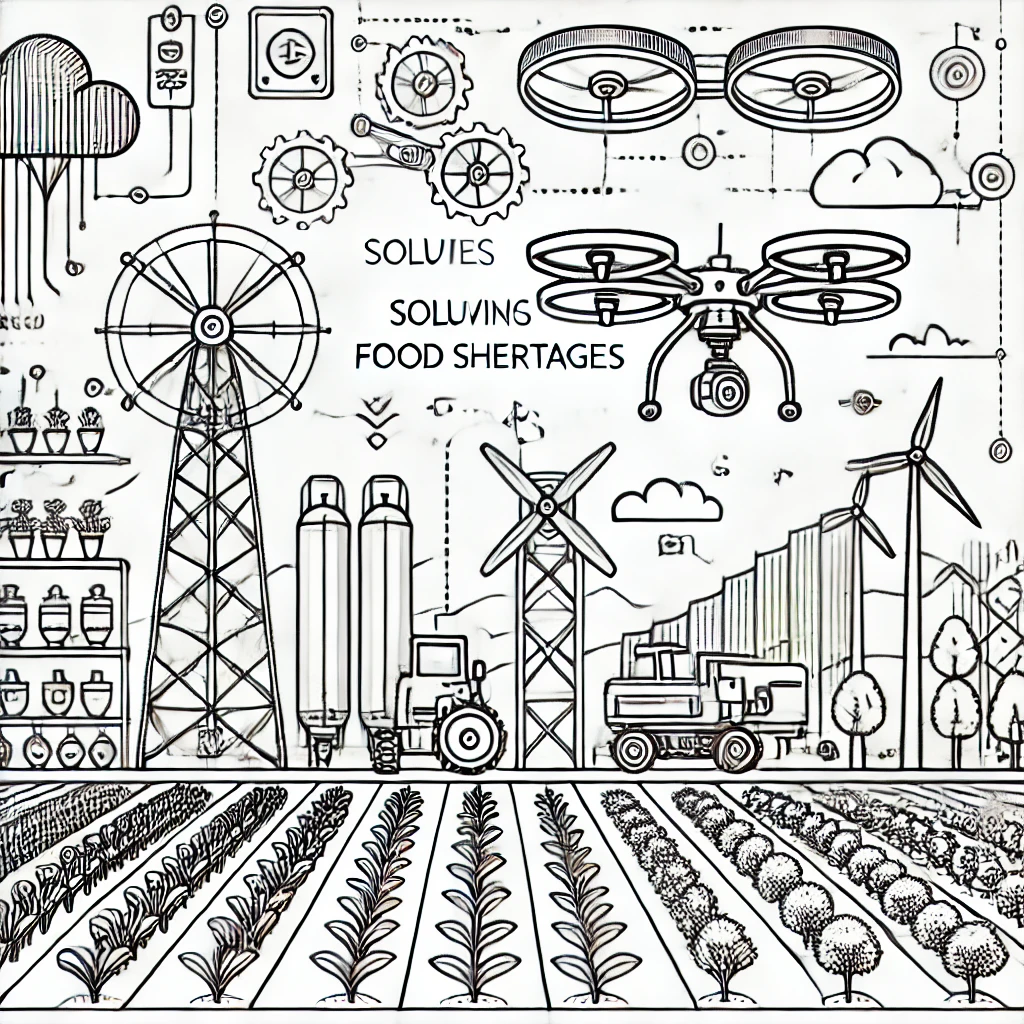The global food crisis has deep historical roots, often tied to population growth, economic instability, climate change, and agricultural practices. Famines in the past were frequently caused by environmental factors, wars, and poor agricultural productivity, leaving millions vulnerable to starvation. Notable examples include the Irish Potato Famine in the 19th century and food shortages during the World Wars. As the global population surged in the 20th century, concerns about feeding the world’s population led to increased scientific and technological interventions to improve food production.
Green revolution and agricultural innovation
One of the most significant breakthroughs in combating food insecurity was the Green Revolution, initiated in the 1940s and 1960s. It introduced high-yielding crop varieties, particularly wheat and rice, developed by researchers like Dr. Norman Borlaug. These crops, combined with the use of chemical fertilizers, pesticides, and irrigation systems, helped increase food production globally and saved millions from starvation, particularly in developing countries. This scientific effort is a key example of how research and agricultural technology can alleviate food shortages.
In recent decades, technological advancements have continued to play a critical role in addressing the global food crisis. Precision agriculture, which uses satellite data, sensors, and drones, helps farmers optimize resource use and monitor crop health in real time, increasing productivity and reducing waste. Genetic modification (GM) of crops has also enabled the development of plants that are more resistant to pests, diseases, and harsh environmental conditions, ensuring a stable food supply even under changing climate patterns.
Another technological leap has been in post-harvest management. Advanced storage and transportation systems, particularly in developing countries, have reduced food spoilage and waste. With approximately one-third of food produced globally going to waste, innovations in supply chain logistics and cold storage are critical for ensuring food reaches those who need it most.
Sustainable practices
The focus now is increasingly on sustainability. Practices like crop rotation, organic farming, and agroforestry are being integrated with modern technology to ensure that food production is environmentally friendly and can be sustained for future generations. Reducing dependence on chemical inputs and promoting biodiversity are key components of these strategies. Initiatives like urban farming and vertical farming, which utilize small urban spaces for food production, are also gaining traction as ways to make food systems more resilient and local.
Global cooperation
Strengthening international cooperation has been another crucial factor in addressing the food crisis. By sharing research, technology, and agricultural practices, countries can collectively improve food security. Global organizations such as the World Food Programme (WFP) and the Food and Agriculture Organization (FAO) actively promote sustainable food systems, and initiatives like the World Food Prize highlight the work of individuals who have made significant contributions to food security through scientific innovation.
In summary, while the global food crisis remains a complex issue, science and technology have consistently provided tools to alleviate hunger and improve food security. The focus moving forward is on developing sustainable practices that will allow us to feed a growing population without depleting natural resources.
References
- Global Reach Internet Productions, LLC – Ames, IA – globalreach.com. (n.d.). Food Science and Technology: a weapon for the fight against hunger, malnutrition and poverty. https://www.worldfoodprize.org/index.cfm/88533/18100/food_science_and_technology_a_weapon_for_the_fight_against_hunger_malnutrition_and_poverty
- Technology Networks. (n.d.). Sustainable solutions for the global food crisis. Applied Sciences From Technology Networks. https://www.technologynetworks.com/applied-sciences/white-papers/sustainable-solutions-for-the-global-food-crisis-377711








